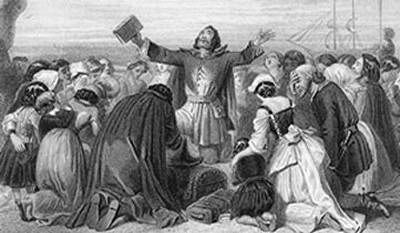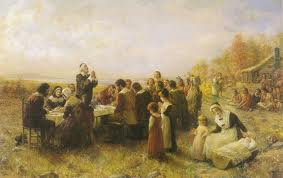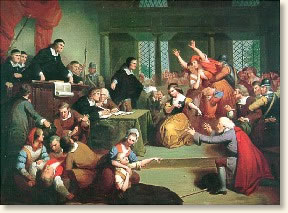Cards In This Set
| Front | Back |
 Dutch colonies |
Consisted of the overseas territories controlled by the Netherlands from the 17th to the 20th century.
|
 Spanish colonies |
Consisted of the territories and colonies administered directly by Spain in Europe, the Americas, Africa, Asia or Oceania.Significance:At the peak of its power, it was one of the largest empires in world history.
|
 Mayflower Compact |
the first governing document of Plymouth Colony.Significance:It was written by the colonists, later together known to history as the Pilgrims, who crossed the Atlantic aboard the Mayflower.
|
 Puritans |
A member of a group of English Protestants of the late 16th and 17th centuries who regarded the Reformation of the Church of England under Elizabeth I as incomplete and sought to simplify and regulate forms of worship.
|
 Separatists |
A person who supports the separation of a particular group of people from a larger body on the basis of ethnicity, religion, or gender
|
 Religion |
The belief in and worship of a superhuman controlling power, esp. a personal God or gods.
|
 Half Way Covenant |
a form of partial church membership created by New England in 1662. It was promoted in particular by the Reverend Solomon Stoddard, who felt that the people of the English colonies were drifting away from their original religious purpose.
|
 Salem Witch Trials |
Were a series of hearings before local magistrates followed by county court of trials to prosecute people accused of witchcraft in Essex, Suffolk, and Middlesex counties of colonial Massachusetts, between February 1692 and May 1693.
|
 Age of Enlightenment |
era in Western philosophy and intellectual, scientific, and cultural life, centered upon the 18th century, in which reason was advocated as the primary source for legitimacy and authority.
|
 Great Awakening |
a religious revival in American religious history. There were three--some say four--such periods of fervor, each characterized by widespread revivals led by evangelical Protestant ministers, a sharp increase of interest in religion, a profound sense of conviction
|
 Virginia Company |
refers collectively to a pair of English joint stock companies chartered by James I on 10 April 1606 with the purposes of establishing settlements on the coast of North America .
|
 Massachusetts Bay Company |
Was an English settlement on the east coast of North America in the 17th century, in New England, centered around the present-day cities of Salem and Boston
|
 Roger Williams |
: English clergyman and colonist who was expelled from Massachusetts for criticizing Puritanism; he founded Providence in 1636 and obtained a royal charter for Rhode Island in 1663 (1603-1683).
|
 Anne Hutchinson |
American colonist (born in England) who was banished from Boston for her religious views (1591-1643).
|
 Thomas Hooker |
a prominent Puritan religious and colonial leader, who founded the Colony of Connecticut after dissenting with Puritan leaders in Massachusetts. He was known as an outstanding speaker and a leader of universal Christian suffrage.
|



